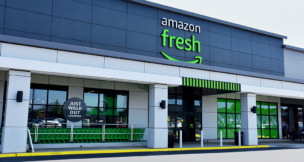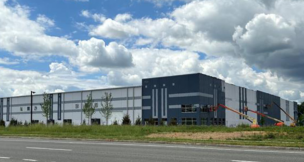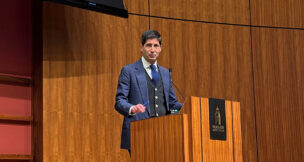CACI, Peraton land $2.2B defense contracts
Reston-based Fortune 500 federal contractor CACI International Inc. and a subsidiary of Herndon-based government contractor Peraton Inc. were awarded parallel contracts each valued at more than $2.2 billion to perform background investigations for the Defense Counterintelligence and Security Agency (DCSA), the Pentagon announced Thursday. The single-award, firm-fixed-price, indefinite-delivery/ind[...]
Peraton lands $850M Pentagon contract
Herndon-based technology contractor Peraton will provide the Department of Defense with agile analytic platforms and data management solutions under a five year, $850 million contract, the company announced Wednesday. “Peraton is proud to continue our longstanding relationship with the DoD supporting the modernization of its data management capabilities,” Tom Afferton, president of PeratonR[...]
Peraton nets $916M intelligence contract
Herndon-based Peraton Inc. has been selected for a seven-year contract valued at $916 million to provide integrated, enterprise-wide management services to the Office of the Director of National Intelligence, the company announced Tuesday. The task order includes communications, human capital, data analysis, knowledge management, partnership engagement, policy and strategy development and intellig[...]
Peraton taps former CIA deputy director as VP
Herndon-based government contractor Peraton Inc. has named Andrew Hallman as its vice president for national security strategy and integration, according to a news release. Hallman formerly served as principal executive in the Office of the Director of National Intelligence and was the CIA‘s deputy director for digital innovation. Hallman will start May 9 and will […]
Peraton receives $254M State Department award
Herndon-based Peraton Inc. has been awarded a five-year, $254 million contract to support the State Department’s Diplomatic Security Service’s cybersecurity operations. The federal contractor announced the award Thursday. Under the contract, Peraton will provide cyber support, including incident management, threat analysis and penetration testing. Peraton will also help the department [...]
Smithfield Foods donates $2M to Ukraine relief efforts
Virginia-based Smithfield Foods Inc. announced a $2 million donation to relief efforts in Ukraine Monday. The nation’s largest pork processor and hog producer donated $250,000 each to the Global Red Cross Network, Mercy Chefs, Save the Children and World Central Kitchen. “Like the rest of the world, we are humbled and moved by the resilience […]
Peraton lands $2.69B Homeland Security contract
Federal contractor Peraton Inc.’s subsidiary, Perspecta Engineering Inc., landed a potential 10-year, almost $2.69 billion contract to assist the U.S. Department of Homeland Security, the company announced Wednesday. Under the indefinite quantity, indefinite quantity contract, Peraton will assist with Data Center and Cloud Optimization Support Services, providing information technology and o[...]
Peraton names SVP and chief procurement officer
Dan Ostrosky became senior vice president and chief procurement officer for federal contractor Peraton Inc. on Monday. “Dan brings decades of proven experience in both procurement and profit and loss leadership and has a thorough understanding of how a strategically aligned procurement organization can be a force multiplier,” Peraton Chairman, President and CEO Stu Shea […]
Peraton wins $343M TSA contract
Federal contractor Peraton Inc. won an up to $342.76 million task order with the U.S. Transportation Security Administration on Dec. 13, 2021. Peraton subsidiary Perspecta Enterprise Solutions LLC, acquired in May 2021, won the IT Management, Performance Analysis and Collaborative Technologies (IMPACT) II contract. Reston-based Fortune 500 contractor CACI International Inc. won the first IMPACT [&[...]
Peraton to move HQ from Herndon to Reston
Federal contractor Peraton Inc. is moving its headquarters from Herndon to Reston, the company announced Thursday. Peraton has signed a lease at 1875 Explorer St. in Reston Town Center. It expects to begin operating in the new headquarters by September 2022, after the completion of initial construction phases. In 2021, Peraton completed both the $7.1 […]
Peraton acquires aaS business of Herndon tech company
Herndon-based federal contractor Peraton Inc. acquired the as-a-service business of Herndon-based IT company ViON Corp., it announced Wednesday. Financial details of the transaction were not disclosed. Peraton acquired ViON’s cloud business and its employees, adding to its storage, computing and network capacity. The company also acquired the business’s contracts with the U.S. Departme[...]
Taking shape
Stu Shea, chairman, president and CEO of Herndon-based national security contractor Peraton Inc., is overseeing the integration of two recently acquired businesses that marked some of Virginia’s most significant business deals in 2021. Shea has been included in both editions of Virginia Business’ annual Virginia 500 issue, a compilation of the state’s 500 most powerful […]















